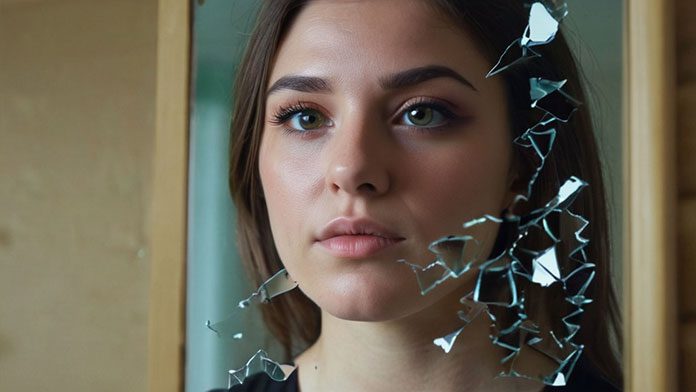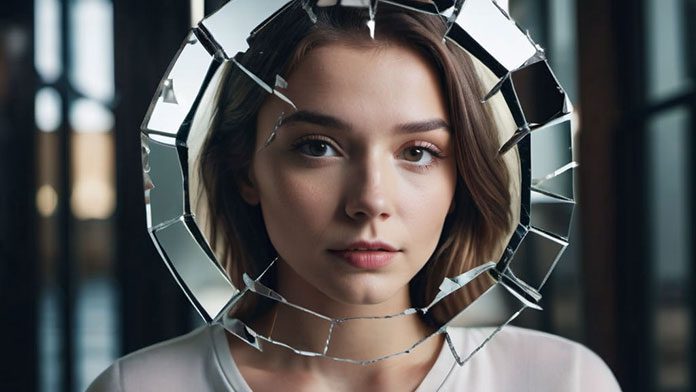Discover the hidden consequences of Snapchat on your mental well-being.
In this article, we delve into the surprising effects that this popular social media platform can have on your self-esteem, body image, and sleep patterns.
Prepare to explore the impact on your anxiety levels, addictive tendencies, and personal relationships.
Uncover the connection to cyberbullying and online harassment that often goes unnoticed.
Brace yourself for a thought-provoking journey that will challenge your perception of Snapchat’s influence on your mental health.
Table of Contents
Main Points
– Snapchat exposure can negatively impact self-esteem and body image, leading to feelings of inadequacy and comparison.
– Frequent use of Snapchat is associated with increased social comparison and fear of missing out (FOMO), creating feelings of insecurity and dissatisfaction.
– Excessive use of Snapchat disrupts sleep patterns and reduces sleep quality, negatively affecting academic performance and cognitive function.
– Comparing oneself to others on Snapchat can increase anxiety and stress levels, especially when constantly exposed to idealized versions of others’ lives.
Impact on Self-Esteem and Body Image

Using Snapchat can negatively impact your self-esteem and body image. The constant exposure to carefully curated and edited images on Snapchat can lead to feelings of inadequacy and comparison. This can be particularly detrimental to individuals who struggle with body positivity and self-worth. Research has shown that frequent use of Snapchat is associated with higher levels of body dissatisfaction and lower self-esteem.
One reason why Snapchat can have such a negative impact on self-esteem and body image is the constant pressure to present oneself in a perfect and flawless way. Users often feel the need to conform to societal beauty standards and compare themselves to others, which can lead to feelings of insecurity and inadequacy. The use of filters and editing features further perpetuates unrealistic beauty ideals, as these tools can drastically alter one’s appearance.
Additionally, the ‘highlight reel’ nature of Snapchat can contribute to feelings of low self-esteem. People tend to only share the best moments and most flattering pictures on the platform, creating an unrealistic portrayal of their lives. This can lead to a distorted perception of reality and a constant need to live up to these unrealistic standards.
Increased Feelings of Social Comparison and FOMO

When using Snapchat, you may experience increased feelings of social comparison and FOMO, due to the constant exposure to others’ seemingly exciting and perfect lives.
Social comparison refers to the tendency to evaluate oneself in comparison to others, and FOMO, or fear of missing out, is the anxiety that arises from the fear of not being included in experiences or activities others are enjoying. Research suggests that these feelings are prevalent among Snapchat users.
A study conducted by Primack et al. (2014) found that frequent Snapchat use was associated with higher levels of social comparison and FOMO. This is likely because Snapchat provides a platform for users to showcase their highlights and achievements, creating an illusion of a perfect life. Additionally, Snapchat’s disappearing nature of content encourages users to constantly keep up with others’ updates, leading to a fear of missing out on important events or experiences.
Moreover, a study conducted by Krasnova et al. (2015) revealed that social media platforms like Snapchat intensify the negative effects of social comparison and FOMO. The constant exposure to carefully curated and filtered content can lead to feelings of inadequacy and dissatisfaction with one’s own life.
It is important to be aware of these potential negative effects and take steps to manage them. Limiting your time on Snapchat, focusing on your own achievements and experiences, and practicing self-compassion can help mitigate feelings of social comparison and FOMO. Remember, everyone’s life isn’t as perfect as it may seem on social media.
Negative Effects on Sleep Patterns and Quality

Using Snapchat before bed can disrupt your sleep patterns and negatively impact the quality of your sleep. Research has shown that the blue light emitted by electronic devices, such as smartphones, can suppress the production of melatonin, a hormone that regulates sleep.
Additionally, the addictive nature of Snapchat can lead to excessive use, causing you to stay up late and resulting in poor sleep.
Sleep Disruption From Snapchat
Snapchat’s impact on your sleep patterns and quality can be surprisingly negative. The use of Snapchat before bed can lead to sleep disruption, resulting in a negative impact on your overall sleep quality. Here are some ways in which Snapchat can disrupt your sleep:
– Increased exposure to blue light emitted by smartphones can interfere with your natural sleep-wake cycle.
– Frequent use of Snapchat can lead to excessive screen time, delaying the onset of sleep and reducing total sleep duration.
– The content on Snapchat, such as stimulating videos and notifications, can be distracting and make it harder for you to fall asleep.
To ensure better sleep, it’s recommended to limit Snapchat use before bedtime and establish a consistent bedtime routine. Creating a technology-free zone in the bedroom can also help promote a more restful sleep.
Poor Sleep Due to Snapchat
Limiting your late-night Snapchat use and establishing a consistent bedtime routine can help prevent poor sleep patterns and maintain sleep quality.
Sleep deprivation caused by excessive use of Snapchat can have a significant impact on academic performance. Research has shown that using Snapchat before bed can disrupt sleep patterns and reduce sleep quality. The blue light emitted by devices, like smartphones, can suppress the production of melatonin, a hormone that regulates sleep. This can lead to difficulty falling asleep and decreased overall sleep duration.
Inadequate sleep has been linked to decreased concentration, memory problems, and impaired cognitive function, all of which can negatively affect academic performance.
It’s important to prioritize sleep by setting boundaries with Snapchat use and establishing a nighttime routine that promotes relaxation and restful sleep.
Negative Impact on Sleep
Cutting back on late-night Snapchatting and prioritizing sleep can improve your sleep patterns and quality. The negative impact of Snapchat on sleep can have detrimental effects on both academic performance and mental well-being. Here are three ways in which Snapchat can negatively affect your sleep:
– Disrupted sleep schedule: Spending excessive time on Snapchat, especially during late hours, can disrupt your sleep schedule. Staying up late to use the app can lead to irregular sleep patterns, making it harder to fall asleep and wake up on time.
– Blue light exposure: Using Snapchat involves staring at a screen, which emits blue light. This type of light can suppress the production of melatonin, a hormone that regulates sleep. This can result in difficulty falling asleep and poor sleep quality.
– Increased anxiety: Constantly checking Snapchat and responding to messages can create a sense of urgency and anxiety. This heightened state of arousal can make it harder to relax and fall asleep, leading to sleep disturbances and decreased sleep quality.
Influence on Anxiety and Stress Levels

If you constantly compare yourself to others on Snapchat, it can significantly increase your anxiety and stress levels. Seeing curated and filtered snapshots of other people’s lives can lead to feelings of inadequacy and FOMO (fear of missing out), which can be detrimental to your mental well-being. Research has shown that excessive use of Snapchat and constant social comparison can have negative effects on individuals, particularly in terms of anxiety and stress levels.
For instance, a study conducted by Woods and Scott (2016) found that college students who spent more time on Snapchat reported higher levels of anxiety and stress. This could be due to the constant exposure to idealized versions of others’ lives, leading to feelings of pressure to measure up and fear of not being good enough. Moreover, the study also found that excessive use of Snapchat was associated with lower academic performance, further exacerbating stress levels.
To illustrate the impact of Snapchat on anxiety and stress levels, consider the following table:
| Snapchat Usage | Anxiety Levels | Stress Levels |
|---|---|---|
| ————- | :————-: | —–: |
| Low | Low | Low |
| Moderate | Moderate | Moderate |
| High | High | High |
As the table suggests, the more time and attention devoted to Snapchat, the higher the likelihood of experiencing elevated anxiety and stress levels. It is important to be mindful of your social media usage and to take breaks when needed to prioritize your mental well-being.
Potential for Addictive Behaviors and Decreased Productivity

Using Snapchat excessively can lead to addictive behaviors and decreased productivity. The constant need to check for updates and respond to messages can create a sense of dependency on the app, making it difficult to focus on other tasks.
This can have a negative impact on work-life balance, as individuals may find themselves spending more time on Snapchat than on important responsibilities or activities.
Addiction and Distraction
You may experience a significant decrease in productivity and an increase in addictive behaviors when using Snapchat excessively. The addictive nature of Snapchat, combined with its constant distractions, can have negative consequences on your mental health and overall well-being.
Here are some ways in which addiction and distraction can impact you:
– Loss of focus: Spending excessive time on Snapchat can make it difficult for you to concentrate on important tasks and responsibilities.
– Time wastage: Constantly checking Snapchat and engaging in its features can consume a significant amount of your time, leading to a decrease in productivity.
– Neglected relationships: Excessive Snapchat use can lead to neglect of real-life relationships, as you may prioritize virtual interactions over face-to-face connections.
It is important to be mindful of your Snapchat usage and find a balance that allows you to stay connected without compromising your productivity and mental health.
Impact on Work-Life Balance
Excessive use of Snapchat can lead to an imbalance between work and personal life, potentially causing addictive behaviors and a decline in productivity.
The impact of Snapchat on work-life balance is a growing concern, as individuals struggle to integrate their professional and personal lives. With the constant urge to check and update Snapchat, people find it difficult to focus on work tasks and responsibilities. This constant distraction can result in decreased productivity and efficiency.
Research has shown that excessive use of social media platforms like Snapchat can contribute to procrastination, time wastage, and a lack of concentration. Moreover, the addictive nature of Snapchat can further exacerbate the work-life imbalance, as individuals become engrossed in the platform and neglect their professional obligations.
It’s imperative for individuals to establish boundaries and prioritize their work commitments to maintain a healthy work-life integration and optimize productivity.
Impact on Personal Relationships and Social Interactions
When engaging with Snapchat, be mindful of its potential impact on your personal relationships and social interactions. While Snapchat can be a fun way to connect with friends and share moments, it’s important to consider how it may affect your relationships and social interactions in the long run.
Here are some ways Snapchat can impact your personal relationships and social interactions:
– Distraction: Snapchat’s addictive nature can lead to spending excessive amounts of time on the app, taking away from quality time with loved ones and face-to-face interactions.
– Comparison: The curated and filtered nature of Snapchat can contribute to feelings of inadequacy and comparison with others, leading to a negative impact on self-esteem and personal well-being.
– Miscommunication: Snapchat’s focus on quick and ephemeral communication may lead to misunderstandings or misinterpretations of messages, potentially causing strain in relationships.
It is important to strike a balance between online and offline interactions. Taking breaks from Snapchat and prioritizing in-person connections can help maintain healthy personal relationships.
Additionally, being aware of the curated nature of Snapchat and practicing self-compassion can help mitigate the negative effects on self-esteem and mental health.
Connection to Cyberbullying and Online Harassment
Snapchat’s connection to cyberbullying and online harassment poses a significant risk to users’ mental well-being. The anonymity and ephemeral nature of Snapchat’s platform have made it an attractive space for cyberbullies to target their victims. Cyberbullying is a form of harassment that occurs online, where individuals use technology to intimidate, threaten, or humiliate others. According to a study conducted by the National Institutes of Health, cyberbullying can have severe psychological effects on its victims, leading to increased levels of anxiety, depression, and even suicidal ideation.
To combat this issue, Snapchat has implemented various features to promote cyberbullying prevention and mental health awareness. One such feature is the reporting tool, which allows users to report abusive or harmful content. Snapchat also provides resources and support for those experiencing cyberbullying, including links to helplines and organizations dedicated to assisting victims.
Furthermore, Snapchat has partnered with mental health organizations to raise awareness about the impact of cyberbullying on mental well-being. These partnerships aim to educate users about the importance of treating others with respect and kindness online. By promoting mental health awareness and providing tools to combat cyberbullying, Snapchat is taking steps to create a safer and more positive online environment for its users.
It is crucial for users to remain vigilant and report any instances of cyberbullying or online harassment they encounter. By actively participating in the prevention of cyberbullying and promoting mental health awareness, users can contribute to a healthier and more supportive online community on Snapchat and beyond.
Frequently Asked Questions
How Does Using Snapchat Impact Self-Esteem and Body Image?
Using Snapchat can have an impact on your body confidence and influence your self-perception. It is important to note that the specific effects may vary depending on individual factors and usage patterns.
What Are the Negative Effects of Snapchat on Sleep Patterns and Quality?
Snapchat negatively impacts sleep patterns and quality, resulting in a disruption of daily routines. The constant stimulation and blue light emitted from screens can have a detrimental effect on your cognitive function, making it harder to fall asleep and stay asleep.
Does Using Snapchat Increase Anxiety and Stress Levels?
Using Snapchat frequently can increase your screen time and contribute to feelings of anxiety and stress. The fear of missing out (FOMO) that comes with constant updates and notifications may negatively impact your mental health.
Can Snapchat Be Addictive and Lead to Decreased Productivity?
Using Snapchat excessively can lead to addictive behaviors and a decrease in productivity at work. It's important to be mindful of how much time you spend on the app to maintain a healthy work-life balance.


